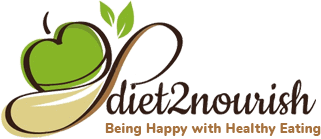Asthma Patient Diet
Asthma patient diet What to eat and what to avoid if you have asthma. Helpful diet plan and recipes to help you manage your asthma symptoms.
A Prevalence of asthma has rapidly increased over the last couple of decades, and this may be well attributed to the increase in pollution, toxins, and triggers present in our environment. Asthma may be explained as a chronic disease that inflames and narrows the airways of our lungs and makes it extremely difficult to breathe. During such a condition, the airways and the muscles around them stay tightened when some trigger flares up asthma, and you suffer from a full-fledged asthma attack. Although there is no special asthma diet ever known, there always has been a special link between your diet and asthma. A dedicated asthma patient diet is an as important part of an asthma treatment plan.
The connection between good nutrition and our overall health is important. It means that if our body is not getting the right balance of nutrients, it is susceptible to various kinds of illnesses and has a harder time fighting respiratory viruses, which may be the prime reason for triggering an asthma attack.
Asthma Patient Diet: The Connection
Now, if you have asthma, you must be curious to know whether the foods that you eat are good or bad for your asthma. As said earlier that there is no conclusive evidence to prove that any specific diet can affect your asthma, eating fresh and nutritious can always improve your overall health, as well as your asthma conditions.
foods good for asthma –
some foods that may trigger asthma symptoms and should therefore be avoided like, foods that can cause gas such as beans, onions, and cabbage, artificial ingredients, preservatives, and flavorings found in foods, and sulfites found in foods like wines and dried fruits.
Foods that trigger asthma
1. Sulfites
Sulfites found in wines, pickles, shrimps, maraschino cherries, dried fruits, and bottled lime and lemon juices are a type of preservative that triggers asthma and worsen the attacks also. These foods are at the top of any asthma allergy foods list.
2. Cabbage, beans, onions, garlic, fried foods, and carbonated drinks
These foods are known to form gas, which puts pressure on your diaphragm, especially if you have problems with acid reflux. They cause chest tightness and may trigger asthma attacks.
3. Coffee, tea, certain herbs, and spices
Often people with asthma are sensitive to salicylates, a naturally occurring chemical compound found in tea, coffee, certain herbs, and spices.
4. Chemical preservatives, colorings, and flavorings
Chemical preservatives, colorings, and flavorings
– Often found in fast and processed foods, people with asthma are many times found sensitive or allergic to these artificial agents.
5. Common food allergens
People with food allergies often suffer from asthma attacks. Some of the most common food allergens are dairy and dairy products, wheat, shellfish, and tree nuts. These are the foods to avoid with asthma.
The worst food for asthma
Our food choices can always help or harm our ability to breathe easily. Apart from the foods mentioned above foods that trigger asthma, here is a list of the worst foods for asthma:
Shellfish:
Shellfish, mainly shrimps contain sulfites, the most common food allergy.
Alcohol:
Alcohol is a fermented drink, and sulfite crops up, whenever there is fermentation.
Dairy Products:
If you are lactose sensitive, you should stay away from dairy, as it may trigger your asthma and bloat.
Processed Meats:
Processed meats are full of preservatives and sulfites. They are also laced with inflammatory saturated fats, all of that is the worst for asthma.
Packaged or Prepared Potatoes:
Sure they contain potatoes, but they also have some salt, vegetable oil, some non-fat milk or whey powder, and preservatives like sodium bisulfite.
Maraschino Cherries:
Canned fruits and bottled juices, all contain preservatives and sulfites.
Best food for asthma
It is no secret that a well-balanced diet is the key to a strong and healthy body and mind. Eating the right foods containing the right nutrients is all that our body needs to stay energized and active, have a super functional immune system, and improve our health, including the health of our lungs. The right foods can help us breathe easier, and in many cases minimize the symptoms of asthma.
Though there are no specific dietary recommendations for asthma. there surely are some foods for asthma that helps support your lungs:
1. Foods rich in Vitamin D
Foods like milk and fortified milk, fortified orange juice, eggs, and salmon are rich sources of Vitamin D, which helps in reducing the number of asthma attacks in patients.
2. Foods rich in Vitamin A
Carrots, sweet potatoes, cantaloupe, leafy greens like kale and spinach, and broccoli, are all rich sources of vitamin A. studies confirm that people with asthma generally have low levels of vitamin A in their bodies as compared to people who do not have asthma. Moreover, better levels of vitamin A in the body correspond to better lung function.
3. Foods rich in Magnesium
A Magnesium can easily be found in foods like spinach, pumpkin seeds, dark chocolate, and salmon. It has studied that people who have low levels of magnesium in their bodies, also have poor lung flow and volume.
4. Apples
An Apple has been found to keep asthma at bay in many patients.
5. Bananas
Banana can decrease wheezing associated with asthma, and all these because of its potassium contents and antioxidants, which help in improving the lungs’ function.
Fruits for asthma
Fruits for asthma -diet rich in fresh fruits, vegetables, and whole grains is believed to improve your immunity, better your lung functions, and reduce the symptoms of asthma. here is a list of some of the best fruits for asthma:
Oranges:
These are a great source of beta carotene, vitamin C, and vitamin E. it helps in reducing inflammation, and the swelling in your lungs.
Apples:
Apples have been shown to decrease the risks of asthma attacks and other asthma symptoms. It also helps in reducing inflammation and leads to better asthma control.
Pomegranates:
Pomegranates provide our bodies with a healthy dose of antioxidants and help in reducing inflammation in our lungs and lower amounts of lung tissue damage.
Strawberries and Cherries:
Strawberries contain flavonoids and vitamin C. They are high in antioxidants and have many anti-inflammatory benefits that improve respiratory functions and our overall lung health.
Bananas:
The potassium and antioxidants in bananas can help decrease the wheezing sound associated with asthma. It also betters our lung function.
Diet for cardiac asthma
Cardiac-asthma is not any type of asthma, but it refers to the breathing difficulties that are caused by the fluid built up in the lungs because of heart failure. People suffering from cardiac asthma experience typical symptoms like cough, trouble breathing, and also faces shortness of breath.
A diet rich in fruits and vegetables monounsaturated and polyunsaturated fats, and lower in sugar, processed and red meats is the best diet for cardiac asthma.
Anti-inflammatory diet for asthma
anti -inflammation has been touted as the main culprit for asthma. Hence, eating anti-inflammatory foods helps in reducing airway swelling and improved the symptoms. Your anti-inflammatory diet for asthma should contain:
Avocado:
Dense in nutrients like fiber, B vitamins, vitamin E, and folic acid, and is filled with heart-friendly monounsaturated fats, avocados are a must.
Dark leafy and cruciferous vegetables:
Kale, Brussel sprouts, and spinach are loaded with vitamins and mineral-like iron, calcium, and phytochemicals, that fight inflammation.
Turmeric:
Contains curcumin, a naturally found plant chemical that is believed to be laced with tons of anti-inflammatory benefits.
Green tea:
green tea has flavonoids – a potent anti-inflammatory agent.
Beets:
Enriched with the goodness of fiber, phytonutrients, and vitamin C, beets have great anti-inflammatory properties.
Eating healthy can improve asthma symptoms. Having a healthy and well-balanced diet can always lead to weight loss, lower blood pressure, lower cholesterol, improved digestion, and better immunity.
Frequently Ask Questions
Staying hydrated is an important factor in staying sit and healthy and is also very important in asthma management. Dehydration may often lead to narrowing of the airways. Some of the best drinks to stay hydrated and keep your asthma under control are:
Water
Tomato juice: rich in vitamin A and C, tomato juice has a protective effect on lung inflammation and can also protect against asthma.
Dairy beverages: like cow’s milk have beneficial nutrients like Vitamin A and D, proteins, magnesium, and calcium. If you are not allergic to dairy, which might trigger asthma, it is good for asthma.
Caffeinated drinks: studies confirm that drinking caffeinated drinks like coffee can reduce the risks of developing asthma. it helps in relaxing your airways so that you can breathe easier.
Drinks with vitamin D: vitamin D supports a healthy immune system and also reduces airway inflammation.










